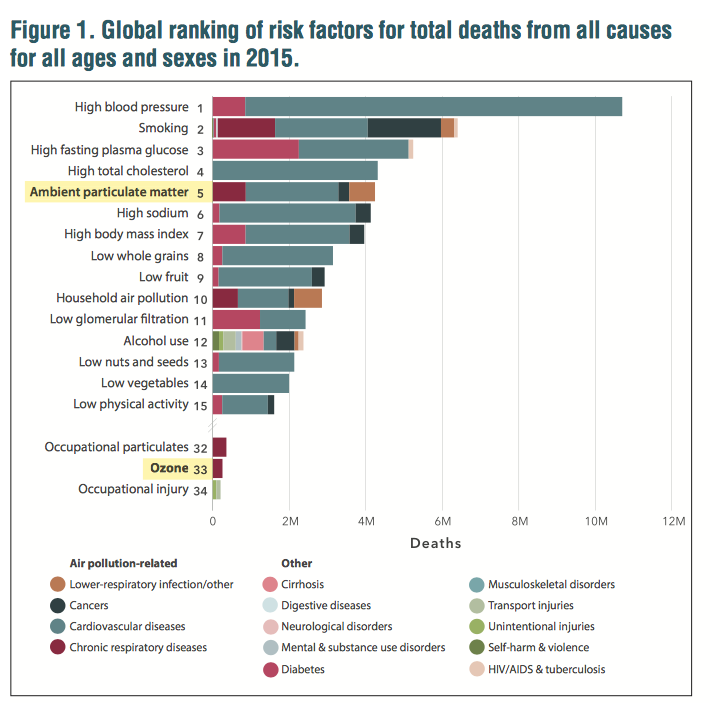Claims entirely blown to hell by my new book, ‘Scare Pollution.’

The new report from the EPA-funded Health Effects Institute is here.
My debunking is in “Scare Pollution: Why and How to Fix the EPA.”
Claims entirely blown to hell by my new book, ‘Scare Pollution.’

The new report from the EPA-funded Health Effects Institute is here.
My debunking is in “Scare Pollution: Why and How to Fix the EPA.”
This graph would suggest that anyone of an age over 100, and who takes an occasional drink, used to smoke or smokes, lives in a major city, likes his fat, sugar and salt; has nine lives. How can we be living longer if what the graph says is true? Using the possibilities shown on the graph, we should not be living past puberty.
Biggest problem I have with the article is that the graph tells us that environment is the only determinate to longevity and we need not consider heredity.
I think there enough things wrong with the graph, and thinking behind it, to infer that whomever put it together was not a scientist but a bicycle riding progressive vegan, of an age to have not felt age creeping in on him/her or who has seen little of lifes brutal randomness.
Essentially, public health related to environmental air quality is determined by the effect on individual people of various associated influences (mainly local) capable of influencing their health either positively or negatively whether temporarily or permanently.
Sometimes, dare I say not infrequently, remediation of air pollution (e.g. reduction of PM as measured on air sampled outdoors for instance) as part of national policy initiatives supposedly in the interest of public health betterment can have the opposite effect e.g. when the ability of people to heat their homes, prepare food or otherwise conduct their daily lives conveniently and/or economically is impaired.
For this reason studies such as those conducted by HEI related to global health allegedly determined by measured levels of outdoor PM2.5 employed as a surrogate surely ought not to be taken seriously as fact based on what amounts to indeterminate data allegedly influencing actual or potential mortality rates according to recognized, internationally accepted, criteria of causality.
You’re right Dave. But here is something else to consider. Suppose a person has high blood pressure, maybe 10 points above ideal. This person is also overweight, maybe 20 lbs. They also have high total cholesterol, smoke and have a high sodium intake. Now this person is 80 years old and killed in an auto accident, (distracted driver). The cause of this person’s death would be listed in all of the above mentioned risk factors in this study while ignoring the real cause of death and the person’s age. Subtle manipulation.
These “causes of death” aren’t even causes of death. Not one of these would appear on a death certificate.
This is all implausible and laughable.